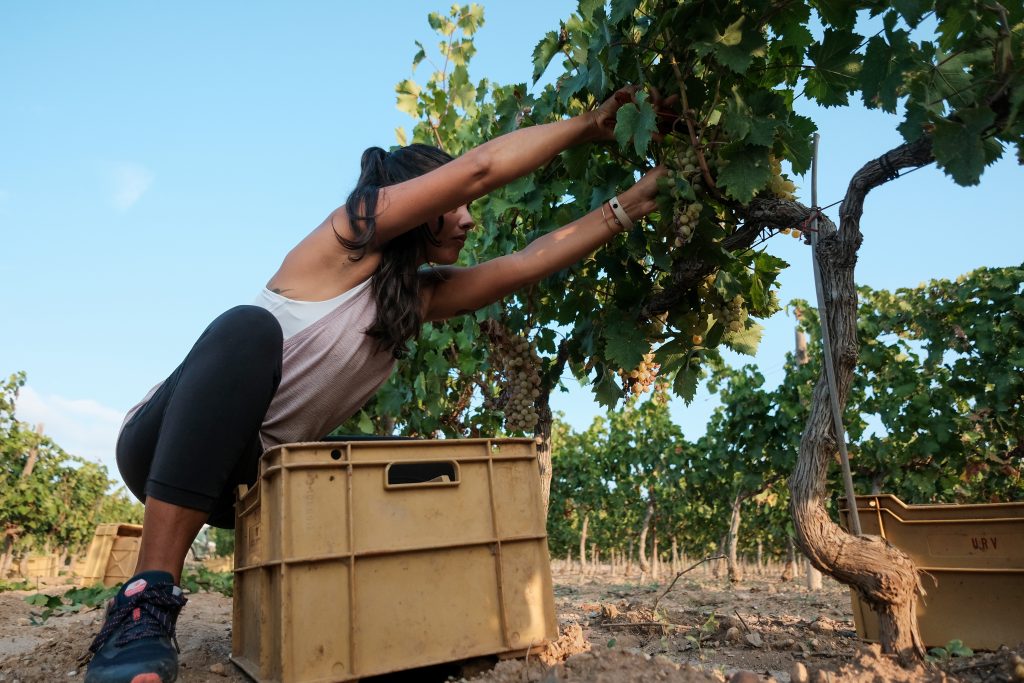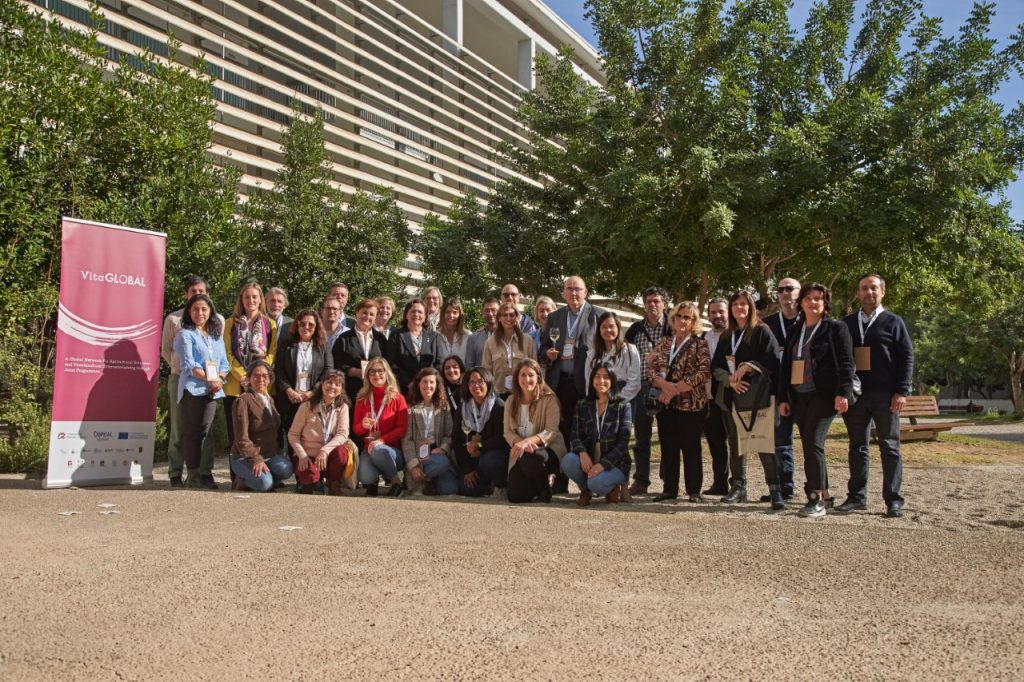09/11/2022
A global inter-university network has been set up to promote local development in oenology and viticulture
The VitaGlobal project, coordinated by URV researcher Joan Miquel Canals, transfers the knowledge of European experts in wine science to universities around the world

The VitaGlobal project, coordinated by URV researcher Joan Miquel Canals, transfers the knowledge of European experts in wine science to universities around the world
The wine sector is constantly evolving and one of the latest catalysts of this change has been the COVID-19 health emergency and its effects on consumption. The explosion of wine tourism, not only in Catalonia but around the world, is a clear example. This phenomenon is the focus of one of the teaching modules that the URV has implemented in universities around the world through the VitaGlobal project.
Funded by the European programme Erasmus+ and coordinated by the researcher from the URV’s Department of Biochemistry and Biotechnology Joan Miquel Canals, the project aims to “implement capacities” on enology and viticulture, which are already well understood in European universities, in educational institutions from other areas of the world. The resulting “human network” generates knowledge, promotes local development and ensures that the wine sector makes economic, technical and academic progress the world over.
In particular, VitaGlobal has allowed the URV, together with the universities of Bordeaux, Porto and Bologna, to export cutting-edge knowledge in this field – for example epigenetics, which studies how environmental changes activate or deactivate genes without changing their DNA sequence – to 14 universities in Argentina, Chile, Uruguay, South Africa and Georgia.
This process is put into practice with training modules, which encapsulate the content so that the trainers at each centre can teach the students. The modules range from wine tourism – taught by lecturers from the URV’s Faculty of Tourism and Geography – to sparkling wines, touching on sensory analysis and viticulture, among other things. “When students find work, they apply this knowledge in the companies they find themselves in and drive the region forward,” explains Canals.
As well as this, the aim is to create a “virtuous circle” in which some of the students on this programme meet leading researchers from European universities and then seek them out when they want to do a doctorate in these disciplines. Canals points out the success of the programme in this respect: “Before it had even finished, we already had examples of cases like this.”
Initiated in 2019, VitaGlobal ends this week with a closing event held in Tarragona and in which from yesterday until the 10th the participants will share their conclusions and discuss long-term sustainability. In addition, a guide will be published to help other institutions use these knowledge modules, since, according to Canals, the wide variety of legislations and the heterogeneity of the educational systems between countries mean that the process can be complex.
A portfolio of leading research staff is also going to be set up online, so that they can be readily contacted by students, teachers and institutions, which will also help to consolidate the network created by the project.

